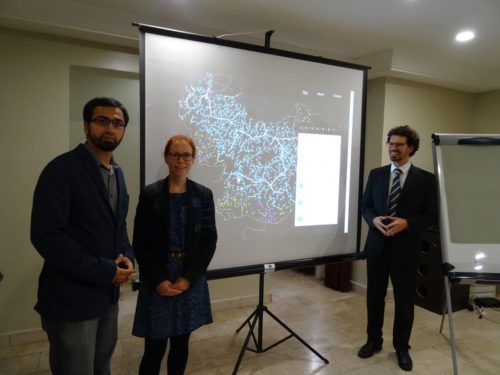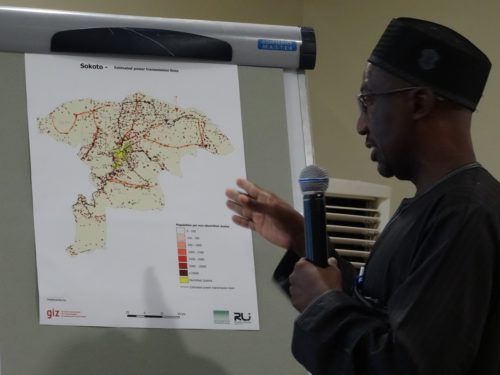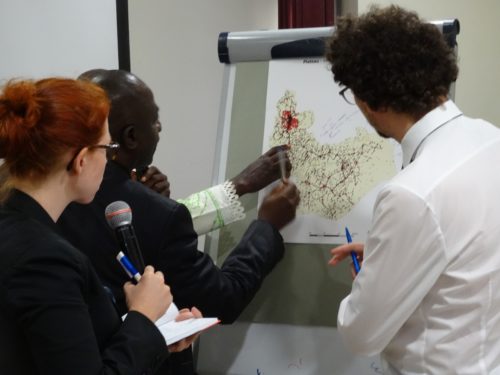Populationsbasierte Optimierungsmethoden zur Entscheidungsunterstützung im Energiesystemdesign: Diskussion einiger Ansätze (Wanitschke et al. 2016)
22. July 2016
open_FRED: open feed-in time series based on a Renewable Energy Database
10. August 2016NESP workshop in Nigeria

23rd July 2016 – Philipp Blechinger and Catherina Cader (RLI team Off-Grid Systems) presented and discussed first results of electrification modelling within the project “Rural electrification modelling in the framework of the Nigerian Energy Support Programme (NESP)” during a two-day workshop in Abuja (Nigeria) on July 21st and 22nd 2016. NESP is a technical assistance program funded by the European Union and the German Government. It is jointly implemented by Deutsche Gesellschaft für Internationale Zusammenarbeit (GIZ) as well as federal and state authorities in Nigeria, such as the Federal Ministry of Power, Works and Housing (FMPWH).

Presentation of preliminary results for grid extension and mini-grids. F. l. t. r.: Muhammed Imran (INTEGRATION Environment & Energy GmbH), Catherina Cader (RLI), Philipp Blechinger (RLI).
After presenting the theoretical background for mini-grid optimization and simulation as well as grid extension modelling for the five NESP partner states Cross River, Niger, Ogun, Plateau, and Sokoto, the participants gave feedback on the results of each state. Among the participants were key stakeholders from each state’s electrification working groups, members of the local geographic information system agencies and distribution companies, representatives of the national counterparts, such as the Rural Electrification Agency (REA) and the Nigerian Electricity Regulatory Commission (NERC). Lively discussions revealed details on the validity of the results and recent challenges on the grounds.

Presentation of state working group discussion results.
Preliminary results confirm that Nigeria faces a deep power crisis at the moment, as no sufficient power generation is available to even supply the current demand while only about half of the Nigerian population is yet connected to the grid. “Especially with regard to that challenge, mini-grids powered by renewables show high potential for providing access to electricity for the currently non-electrified regions”, summarizes Catherina Cader, who is currently writing her dissertation on the same topic at RLI. “Meeting our Nigerian partners has once again given us important insights concerning people’s needs and local characteristics. For our work, this input is immensely valuable in order to jointly develop good strategies that bring us one step further in achieving the goal of providing all Nigerians access to sustainable electricity.”

Detailed feedback discussions on the modelling results.
© Photos: RLI




